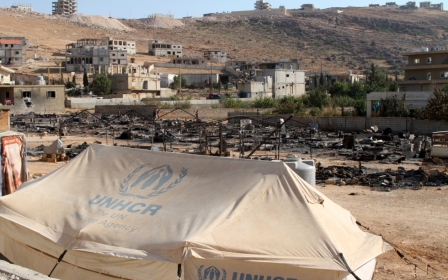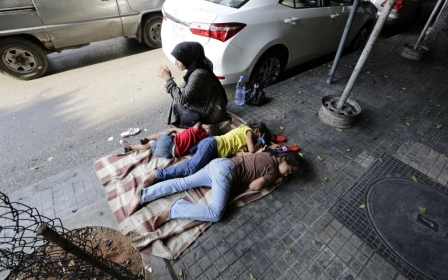Lebanese police arrest man over prank beheading video

Lebanese police have arrested a man who filmed himself threatening to behead three small refugee children from Syria who had been left in his care, a security official told AFP Saturday.
The video, which was posted on YouTube Friday and shared widely, shows the three terrified children crying as a man standing behind a camera waves a knife and asks: "Whom do we behead first?"
Adding to the pathos of the incident, the crying children respond by pointing at each other.
A security official said the video proved to be a "sick joke," and that the children had been left in the man's care by their mother, his neighbour, while she was out at work.
"The intelligence branch of the Internal Security Forces has detained the man who made the video," said the police official, adding that the incident had taken place in the southern Nabatiyeh province.
The police also briefly arrested the children's mother, who confessed to enjoying the scene she found when she returned from work and can be heard laughing in the video.
The woman was released shortly afterwards, after pledging to treat her children better.
Before the arrests, the video was widely circulated on social media, with many commenters believing the scene was really the prelude to a grisly beheading targeting three children under the age of 8.
While describing the incident as "an isolated incident," the official said the video was yet another sign of the effect of the Syrian war on reigniting sectarian conflicts in Lebanese society.
Lebanon hosts more than 1.1 million Syrian refugees, and fighting related to the conflict frequently breaks out in the country.
After the arrest of the prankster, the Lebanese official said that authorities "call on everyone to make sure we maintain our awareness, but of course this video shows the depth of the impact of the Syrian crisis.”
"People are affected by seeing images of beheadings, and some people will start to imitate them. Poor children; they were terrified," he added.
Middle East Eye propose une couverture et une analyse indépendantes et incomparables du Moyen-Orient, de l’Afrique du Nord et d’autres régions du monde. Pour en savoir plus sur la reprise de ce contenu et les frais qui s’appliquent, veuillez remplir ce formulaire [en anglais]. Pour en savoir plus sur MEE, cliquez ici [en anglais].




